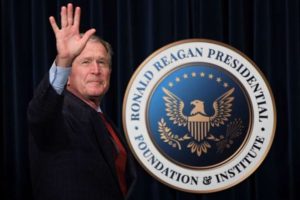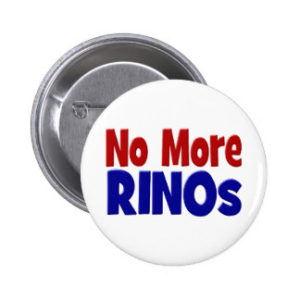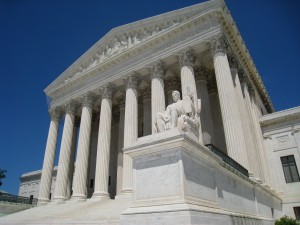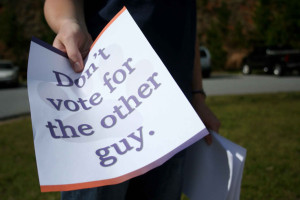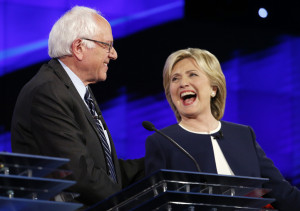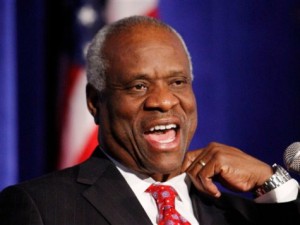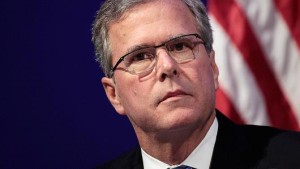George W. Bush is saying he doesn’t want to “criticize” his successors as president of the United States.
Then he says things that sound oh, so critical of them.
Which is it, Mr. President? Are you going to weigh in fully or are you going to keep one foot off the scales?
Speaking at the Ronald Reagan Presidential Library, the ex-president warned against “isolationist tendencies,” an apparent reference to some of the statements made by Donald J. Trump and his administration.
It would behoove Bush to steer clear of references to the Iraq War, which in my view, didn’t turn out quite the way he and his team envisioned it and sold it to the United Nations and to the American public. We weren’t greeted as “liberators”; the fight to secure Baghdad was far tougher than advertised; and, oh yes, we never did find those weapons of mass destruction that the Bush team said were in the late Saddam Hussein’s possession.
As USA Today reported, “Bush said that there is a lesson ‘when the United States decides not to take the lead and withdraw,’ an apparent critique of former President Barack Obama.
“’Vacuums can be created when U.S. presence recedes and that vacuum is generally filed with people who don’t share the ideology, the same sense of human rights and human dignity and freedom that we do,’ he added.”
The former president should lose the pretense of “not wanting to be critical” of his successors. That would be too bad if he did decide to weigh in fully. I kind of admired his declaration that he didn’t want to undermine his immediate successor, President Obama, as he sought to craft his own foreign and domestic agenda. Neither did his father, George H.W. Bush, when he turned the presidency over to the man who defeated his re-election effort, Bill Clinton.
If Bush 43 is going to speak critically of current policy, then he just ought to say so and cease trying to sugarcoat it with “I don’t intend to criticize anyone” statements.
Actually, Mr. President, I get what you are trying to say.
